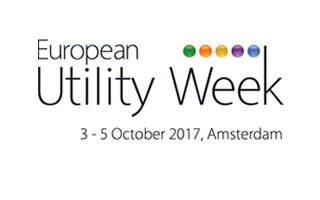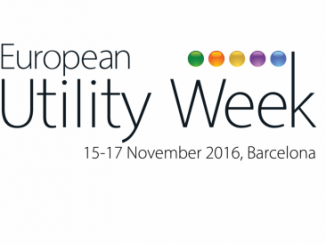
Utility Week is the major event bringing together in Europe the world of final energy with both the industry and utilities. It was held this year in Amsterdam. Why, then, was it true life? And what is real life in the world of energy?
It is simply a world of chaos and continuous disruption and this is what Utility Week symbolized this year. Not that the organization was chaotic, on the contrary, even if the multiplication of national pavilions gives a layout less readable and less comfortable to the visitors than to the exhibitors themselves.
Among utilities, we could meet together utilities thinking that the size of their booth must be commensurate with their rank, large utilities that presented wonderful innovations on more discrete and smaller booths but overcrowded, demonstrating remarkable vitality and creativity, large utilities communicating on their incumbent business on almost empty booths and a multitude of utilities representatives nosing and searching among the exhibitors to feed their own reflection. I observe this diversity on a daily basis with many of my clients, and I have had confirmation in Amsterdam that many utilities have undergone a profound transformation and are surprising in their achievements. All share a sense of urgency and the impression of being only at the beginning of their transformation.
In line with a movement already observed last year, the industry confirms a withdrawal on its foundations: fewer innovations and very operational messages showing the maturity of the markets addressed and the clear demands of buyers: for example, meter manufacturers focus their communication on the reliability of data acquisition; the exotic features have disappeared, the futuristic uses of the meter also. Would smart meters become the commodity their electromechanical ancestors were 30 years ago? As for the major IT suppliers, they work behind the scenes with their customers and have so much to contribute. They no longer display great, capricious messages: may time have changed?
Start-ups seemed to me to be more diversified than in recent years, more serious in their value proposition. The blockchain technologies, the latest buzz to date, did not give rise to an explosion of exhibitors but to a particularly strong attendance of start-ups of the domain. If every visitor to the LO3 Energy stand turns into a customer this year, it’s time to invest in this start-up!
Some European projects and research institutes exhibited their work: they often seemed to me to be offbeat. The time it takes to set up a file on a given subject with the formalism imposed in this world, get the funding and carry out the project is long enough that at the end of the project, the subject is obsolete, surpassed by new concepts and several waves of innovation. Some research institutes in the countries of northern Europe seem to have identified the situation and are changing their mode of action.
An observation by application or technology is also rich in lessons.
Storage is an application recognized by the majority as mandatory for the energy world today. Few companies were present in this field: Eaton and Socomec among the big suppliers of products, Tiko stood out by proposing a packaged solution for the residential. Where were the other contenders? Disinterest for the event? Too much work and not enough time to be present?
The “DR service providers” were counted on the fingers of the hand. With the exception of Energy Pool, all are evolving towards a positioning as a software provider of platforms for activating and valuing flexibilities and no longer as an operator of activation and trading. Some are attempting a global change, others are changing their positioning by country. This change is justified by the desire to reduce exposure to risks and bypass the difficulties of addressing the industrial market. Indeed, apart from fully controllable processes such as electrolysis benches, the engagement of industrial processes implies excellent skills on these processes that most aggregators do not have and have difficulties to acquire.
Smart Home, once a star application of the show, is very discreet. The great achievements of the field are absent: what a pity! Neither Eneco nor Innogy nor British Gas!
Have Big Data and Cloud Solutions reverted? IT providers mention them as evidence. The cloud solutions are indeed part of the landscape, but is the presence of many data sufficient to obtain the label “Big Data”? In my mind, “Big Data” solutions make it possible to extract a particular value from large amounts of data, not accessible in a trivial way. This definition does not seem to be shared. Would there still be excessive promises in the field?
The Blockchain technologies seem to be on the front of the stage. Little represented this year, they give rise to pitches still revealing much immaturity. But the promises are there. I am already very anxious to measure the progress of the domain at EUW 2018.
Finally, let us return to the classical electrotechnical industries. Most have finally taken the step of no longer selling products but the benefit they bring: we are now talking about energy quality solutions, network service continuity or reduction of online losses. What seems to me the most revealing of the state of the current market is the awareness of many companies (six have spoken to me) that deep changes are taking place in the market and that they, industrials, do not perceive them always ; their access to the market via intermediaries and historical channels plays the role of a screen between the final markets and them. They now have the concern to look behind this screen to explore other growth opportunities: it is a safe bet that all actors, cities and energy companies first, will win.
These industries in full questioning, the heterogeneity of the start-ups present, the diversity of utilities in their degree of innovation and awareness of the evolution of their environment translated perfectly, unwittingly, the chaos of the market current energy.




Leave a Reply